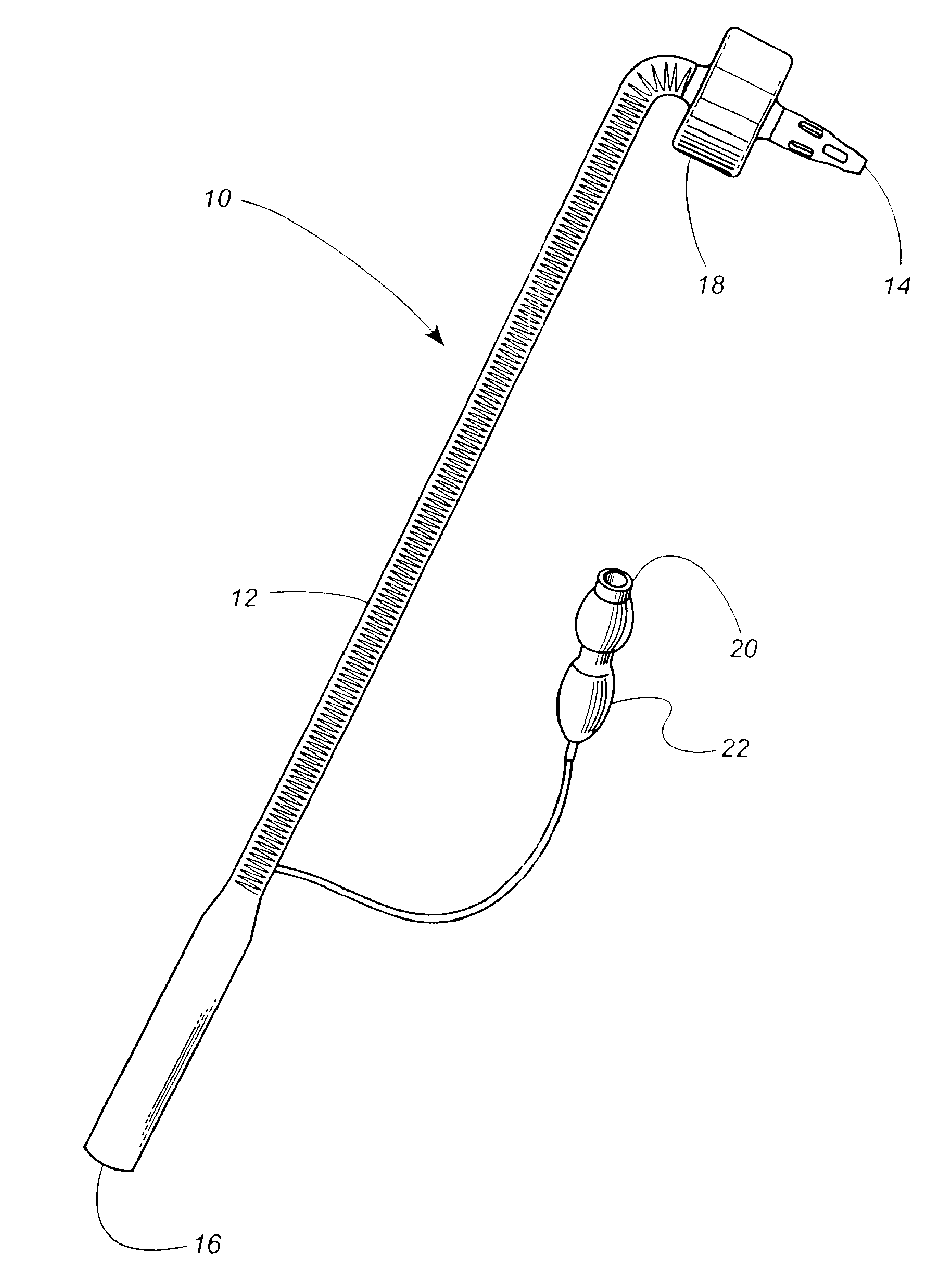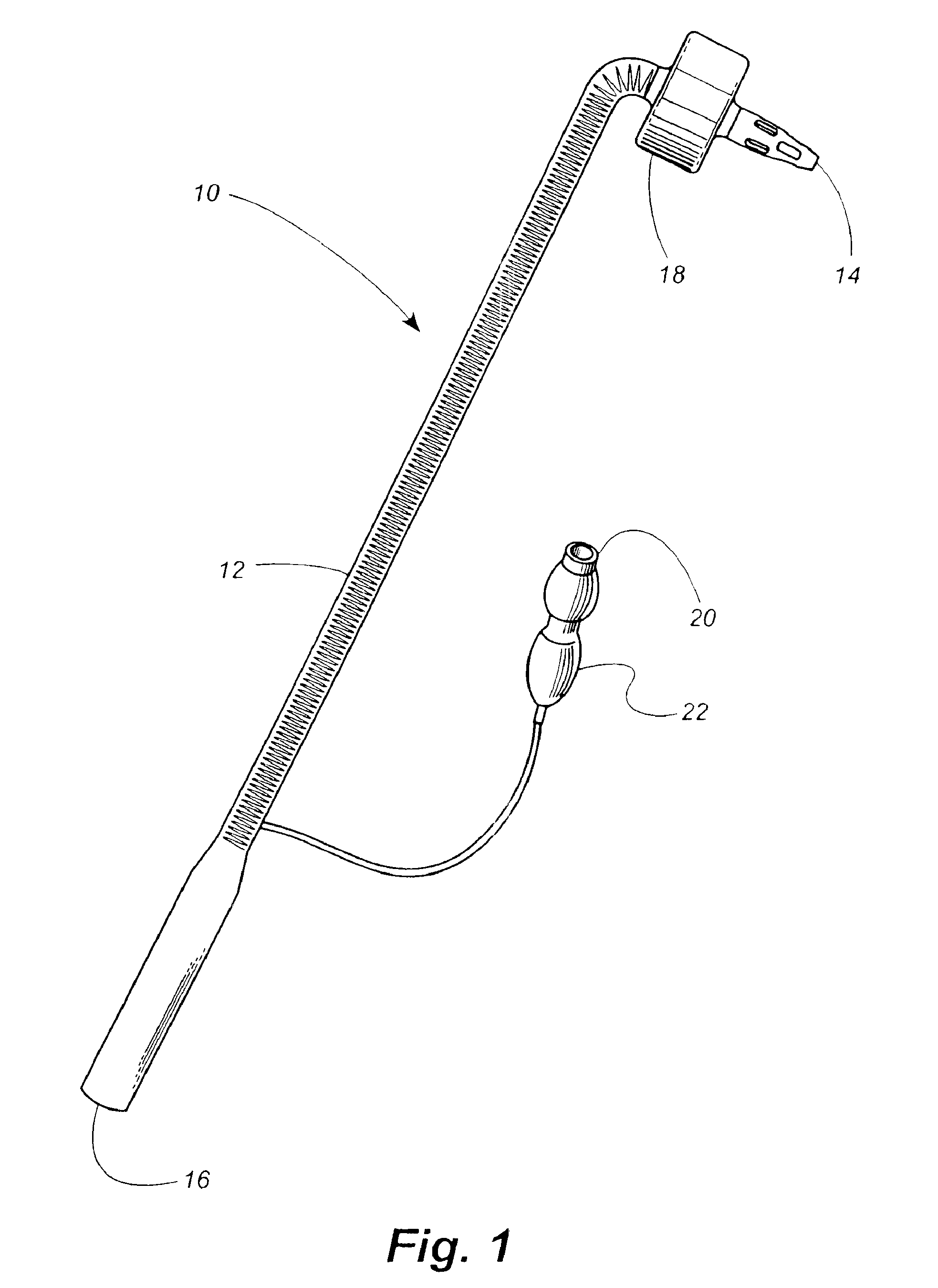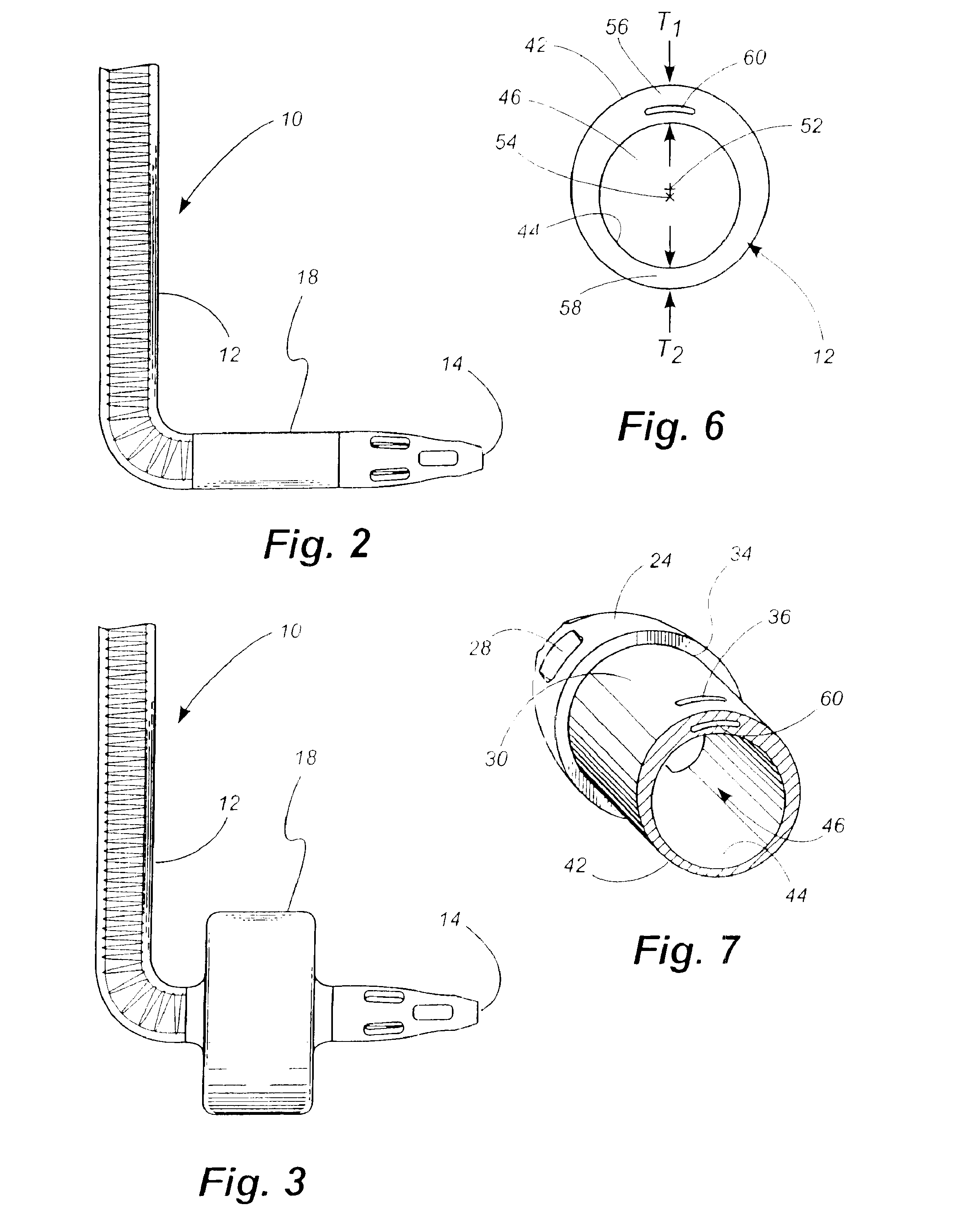Balloon cannulae
a technology of balloon cannula and stent, which is applied in the field of new design of balloon cannula, can solve the problems of inability to provide a truly symmetrical placement of an inflated balloon around a central lumen of standard diameter, unpredictable and suboptimal flow characteristics, and increase the likelihood of intimal vascular injury and clot or plaque embolization, so as to reduce tissue trauma, minimize the chance of caval injury, and eliminate the need for circumferential dissection
- Summary
- Abstract
- Description
- Claims
- Application Information
AI Technical Summary
Benefits of technology
Problems solved by technology
Method used
Image
Examples
Embodiment Construction
[0064] Referring now in more detail to the drawings, in which like numerals indicate like elements throughout the several views, FIG. 1 illustrates a balloon cannula 10 according to a disclosed embodiment of the present invention. The balloon cannula 10 includes an elongated, tubular cannula shaft 12 having a distal end 14 and a proximal end 16. In the disclosed embodiment, the cannula body 12 is constructed of a pliable material such as, but not limited to, natural or synthetic rubbers, elastomers, polyisoprenes, polyurethanes, vinyl plastisols, acrylic polyesters, polyvinylpyrrolidone-polyurethane interpolymers, butadiene rubbers, styrene-butadiene rubbers, rubber lattices, and other polymers or materials with similar resilience and pliability qualities. An inflatable member or balloon 18 is located adjacent the distal end 14 of the cannula shaft 12. An inflation valve 20 adapted to accommodate a syringe or other suitable apparatus branches off from the cannula shaft 12 at a locat...
PUM
 Login to View More
Login to View More Abstract
Description
Claims
Application Information
 Login to View More
Login to View More - R&D
- Intellectual Property
- Life Sciences
- Materials
- Tech Scout
- Unparalleled Data Quality
- Higher Quality Content
- 60% Fewer Hallucinations
Browse by: Latest US Patents, China's latest patents, Technical Efficacy Thesaurus, Application Domain, Technology Topic, Popular Technical Reports.
© 2025 PatSnap. All rights reserved.Legal|Privacy policy|Modern Slavery Act Transparency Statement|Sitemap|About US| Contact US: help@patsnap.com



